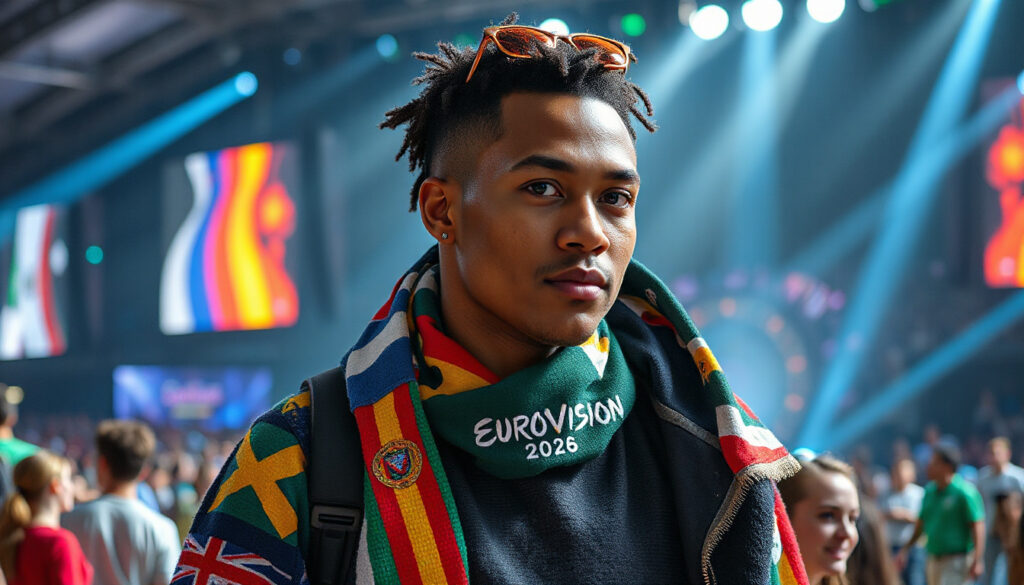In a year marked by conflict and resilience, Israeli singer Yuval Raphael captivated audiences at the Eurovision Song Contest on May 17, 2025, hosted in Basel, Switzerland.
Against the backdrop of ongoing tensions in Israel, Raphael’s remarkable journey from a humble 15th place in the jury votes to a triumphant second place overall showcases not only her talent but the power of public support in the face of adversity.
With 297 points from the audience, a response from 34 of 37 countries, and a unique ‘Rest of the World’ voting category, Yuval’s performance became a beacon of hope and national pride during turbulent times.
This article explores Raphael’s inspiring story, the dramatic dynamics of public versus jury voting, and the significance of her achievement amid such a somber context.

Key Takeaways
- Yuval Raphael’s second place finish at Eurovision symbolizes a triumph of public support amidst national adversity.
- Despite starting in 15th place, overwhelming public votes in 34 out of 37 countries propelled Raphael to the top of the leaderboard.
- The contrasting evaluations between public voting and jury scores showcase a significant divide in opinions about Raphael’s performance.
The Journey to Eurovision: Overcoming Challenges
The journey to Eurovision for Yuval Raphael not only represented a musical endeavor but also a profound testament to resilience in the face of adversity.
As the Eurovision Song Contest convened on May 17, 2025, in Basel, Switzerland, Raphael’s entry stood out amid the tumultuous backdrop of the ongoing Gaza War, where many viewers found themselves in bomb shelters due to missile threats.
Despite starting the competition in 15th place with a mere 60 points from the international juries, a remarkable turnaround occurred as Raphael’s heartfelt performance resonated deeply with the audience, earning a staggering 297 points through public voting.
The impact of this public support was remarkable, as it reflected the sentiments of viewers from 34 out of 37 countries, alongside engagement from a newly introduced ‘Rest of the World’ category, allowing fans from non-participating nations to cast their votes.
This surge in public favor not only propelled Raphael to a second-place finish, a historic feat as the first Israeli to win public voting since Netta Barzilai, but also highlighted a striking disconnection between the public’s approval and the jury’s evaluation.
Raphael’s assertion that with just 50 more points from the judges, Israel could have clinched the victory underscores the complex dynamics at play within the Eurovision voting system.
Moreover, amidst the external chaos of protests and security incidents, Raphael, while acknowledging the broader struggles of her nation, embraced her role as a representative of strength and unity, stating, ‘what a situation this is.
Second place in Eurovision, that’s what we need, right?’ This journey, framed by significant national challenges and passionate international support, ultimately symbolized an uplifting moment for the Israeli spirit.
Public Support versus Jury Evaluation: A Deep Dive
In the landscape of competitive music, the Eurovision Song Contest has long been a barometer of public sentiment and artistic expression, yet the recent clash between public support and jury evaluations has sparked critical discourse among fans and analysts alike.
The 2025 contest vividly illustrated this divide, especially highlighted by the performance of Yuval Raphael.
Emerging from the shadows of early criticism, where her position rested precariously at 15th with just 60 points, Raphael’s ascent to second place showcased the powerful influence of grassroots support that often contradicts the assessments made by professional juries.
The incorporation of a new voting category, allowing participants from non-competing countries to engage, emphasizes a evolving spirit of inclusivity that transcends borders.
However, the contrasting experiences of public audiences resonating emotionally with Raphael’s art and the more reserved, calculated evaluations from juries spotlight the ongoing dilemma within the Eurovision framework.
While critics argue the merits of jury evaluations in ensuring quality, supporters maintain that public opinion is crucial in reflecting the true spirit of the competition, thereby posing the question: can a balance be struck between expert judgment and the voice of the people in future contests?







